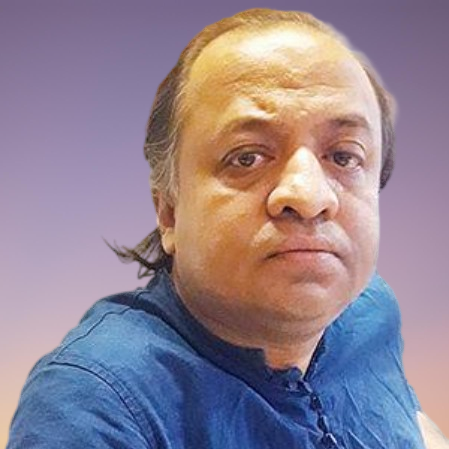Culture

Nirmalendu Goon belongs to the generation of writers that emerged in the 1960s. He is in the ranks of poets who have never detached themselves from the masses. His poetry reflects his experiences of the Liberation War (1971). Goon was one of the most prominent young poets in the post-liberation period. Since then, he began experimentation on language and poetic form. Over the years, the poet has developed a signature style, distinguished by simple language, powerful syntax and subtlety.
The poet turned 74 on June 21.
Nirmalendu Goon is one of the most popular Bangladeshi poets known for his accessible verse. He was born in Kashbon in Barhatta, Netrokona. His first book of poetry was published in 1970. Since then he has published sixty five collections of poetry and twenty collections of prose. Part of the generation of poets of 1960s, Goon's poetry contains stinging criticism of the nouveau riche and a touching description of the contrasting fate of the masses. A love of freedom and faith in the human spirit also permeates many of his poems. An avowed Marxist, Goon has also written poems urging an upheaval of the poor against the rich. He also has written a number of poems on important personalities, including Rabindranath, Sheikh Mujib, Lenin, Shakti Chattopadhyay and others.
Goon's first book of poetry, Premanghshur Rokto Chai, was published in 1970. Since then he has published forty-five collections of poetry and twenty collections of prose. Part of the generation of poets of 1960s, Goon's poetry contains stinging criticism of the nouveau riche and a touching description of the contrasting fate of the masses. A love of freedom and faith in the human spirit also permeates many of his poems. An avowed Marxist, Goon has also written poems urging an upheaval of the poor against the rich. He also has written a number of poems on important personalities, including Rabindranath, Sheikh Mujibur Rahman, Lenin, Shakti Chattopadhyay and others. Goon wrote three autobiographical books - Amar Chhelebela, Amar Konthhoshor and Atma Kotha 1971.

























Leave a Comment
Recent Posts
Pedaling Through the Mangroves ...
The journey from the bustling streets of Barishal to the serene, emera ...
Why the Interim Government mus ...
Two weeks out from what is expected to be a red letter day in the figh ...
Doesn’t matter who thinks what about Bangladesh deci ..
The Other Lenin
US President Donald Trump said his administration
Govt moves to merge BIDA, BEZA, BEPZA, MIDA